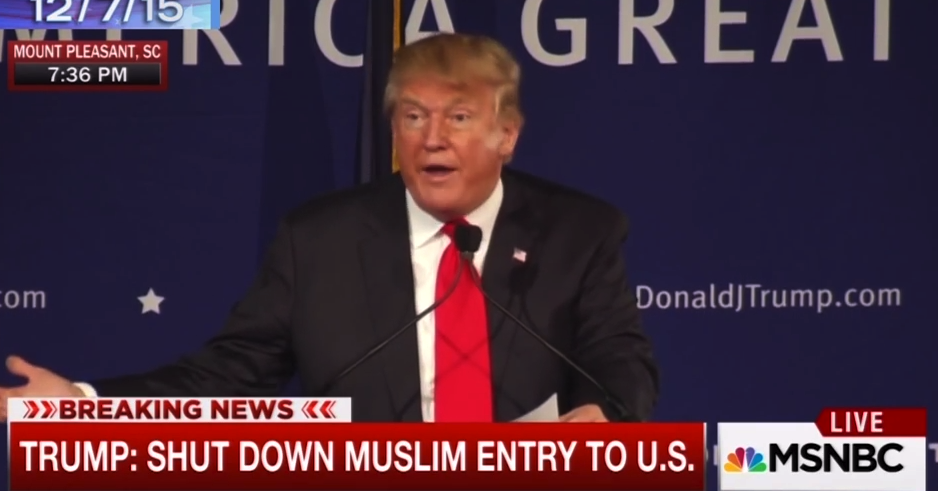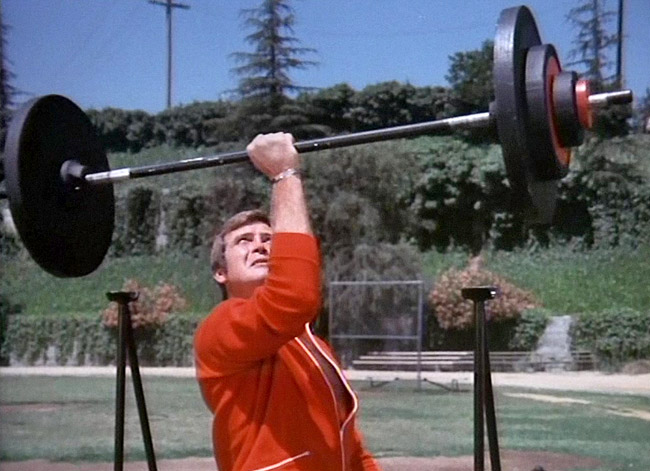- America is not a “nation founded by geniuses, so it can be run by idiots,” as the Foxworthy faction of the GOP would have you believe. Our Forefathers’ greatest gift may have been to realize they were deeply flawed, that the Constitution was no Holy Grail, and that it would need to be amended, to be a living, breathing thing. We’re only as good at any given point as our interpretation of what America means. It’s up to us.
- While longstanding traditions give our system a resilience new democracies don’t enjoy, our foundation, strong though it may be, can collapse. Most Americans are raised believing the checks and balances of our federal government will keep our system from imploding, but the strength of those levers are dependent on a number of other factors. For one, the Fourth Estate, journalism, needs to be healthy to serve as a watchdog. Due to technological disruption and changing customs, that industry isn’t faring well right now. This problem informs another: We must be an educated populace that holds democracy dear and wants it for all citizens. Also: The person holding the office of the President needs to be a sane, reasonable figure not given to autocracy, because the occupant of the Oval Office has copious opportunities to abuse power. If the President does attempt to shred the Constitution, the Congress and the Senate must act boldly to remove that person. That’s our last line of defense short of revolution.
In an excellent Politico article “Yes, American Democracy Could Break Down,” Yascha Mounk lays out exactly how things could fall apart, if not in the time of Trump, then at some point. An excerpt:
If you game it out, there are at least three likely scenarios that lead to a crisis. The first case would be Trump ordering the federal bureaucracy to do something blatantly unconstitutional—like, say, closing down mosques or prosecuting political opponents. It is likely that many senior bureaucrats would refuse to comply with such an order, either resigning in protest or simply disobeying the relevant instructions. In a political world in which leading politicians and most voters have a deep commitment to democratic norms, this is an effective form of resistance: The press would be likely to cover the story prominently. Public opinion would rally against an administration that insists on issuing illegal instructions. The President would back down. According to Constitutional scholars like Jack Goldsmith, a Harvard Law School professor who has written extensively about limits of executive power, this is exactly the kind of mechanism by which, despite its vastly expanded powers, the executive has effectively been constrained since 9/11.
But all of this assumes that we can still count on a shared commitment to democratic norms, and have a President who is sensitive to widespread outrage. So what would happen if a President Trump decided that he would rather persist with an unpopular course of action than risk looking weak? Or if public opinion didn’t swing against him in the first place? (Since many recent polls show broad support for discriminatory policies against Muslims, this is hardly an unimaginable scenario.)
In essence, there would then be little to stop the President from a simple power move: firing all bureaucrats who disobey his orders, and replacing them with loyalists. There is, in fact, a clear precedent for this in American history. In the so-called Saturday Night Massacre, Nixon instructed Attorney General Elliot Richardson to fire special prosecutor Archibald Cox, who had been appointed by Congress to look into his illegal activities during the Watergate scandal. When Richardson resigned his post in protest at the President’s attempt to interfere in judicial proceedings in such a blatant manner, Nixon instructed Deputy Attorney General William Ruckelshaus to do his bidding. When he, too, resigned in protest, Nixon turned to Solicitor General Robert Bork—who duly complied. By the end of the night, Cox was gone.
If a President Trump took a leaf out of Nixon’s playbook and repeated the Saturday Night Massacre at an even bigger scale—including rank-and-file bureaucrats as well as political employees in his purge—it would undoubtedly sow chaos and deplete federal agencies of much-needed expertise. But finding a team of hacks to follow his orders, however haphazardly, would not prove difficult. If he wanted to close down mosques, or have his cronies prosecute political opponents, he probably could.•


